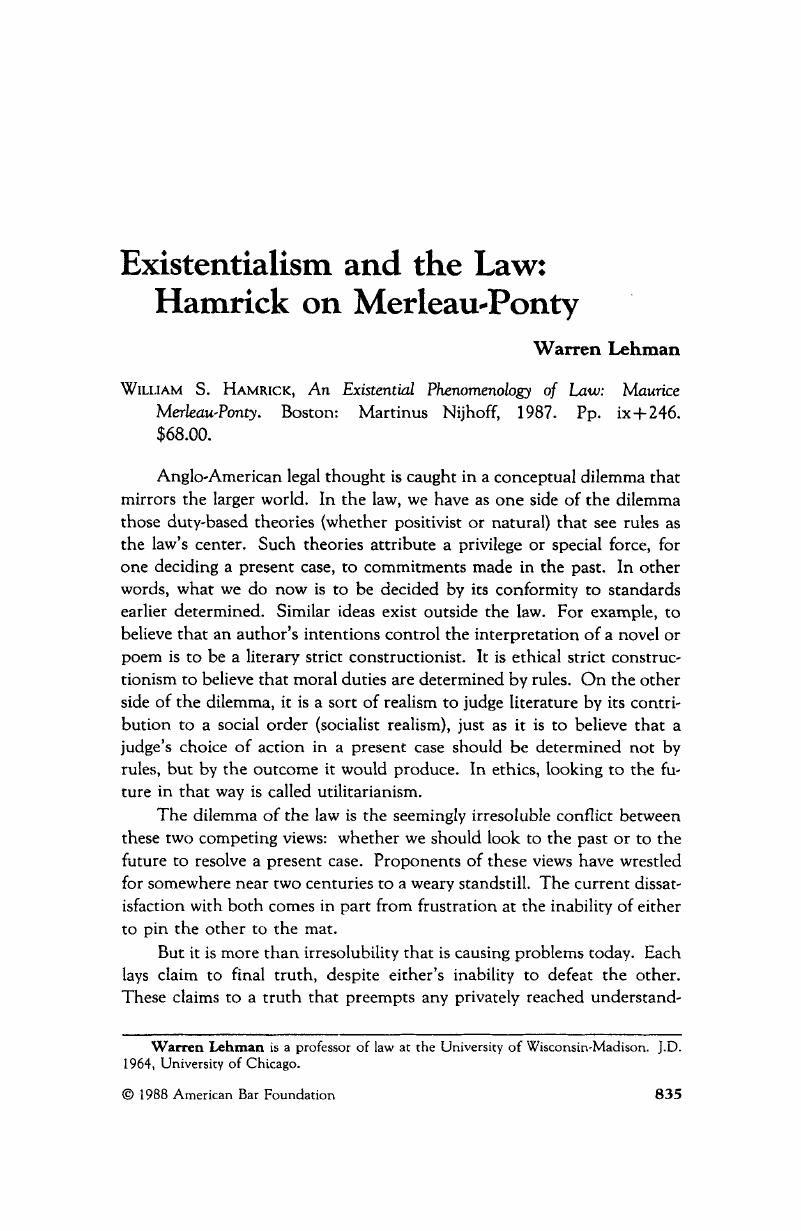No CrossRef data available.
Published online by Cambridge University Press: 27 December 2018

1 Sartre, Jean-Paul, “Merleau-Ponty [I],” trans. W. Hamrick, 15 J. Brit. Soc'y Phenomenology 132 (1984).Google Scholar
2 Lucien Levy-Bruhl, How Natives Think, trans. L. Clare (1985).Google Scholar
3 See M. Merleau-Ponty, Adventures of the Dialectic, trans. J. Bien (1973), discussed in Hamrick at 94-102.Google Scholar
4 F. de Saussere, Course in General Linguistics, trans. R. Harris (1983).Google Scholar
5 See J. Stone, Legal Systems and Lawyers' Reasoning ch. 7 (1964). The citations for the Goodhart, Simpson, Montrose, Stone exchange on the ratio decidendi are collected in Lehman, Warren, “Rules in Law,” 72 Geo. L. Rev. 1571, 1573 (1984).Google Scholar
6 Lehman, Warren, “The Pursuit of a Client's Interest,” 77 Mich L. Rev. 1078 (1979).CrossRefGoogle Scholar
7 Sartre, J. Brit. Soc'y Phenomenology (cited in note 1).Google Scholar
8 Hutcheson, Joseph, The Judgment Intuitive: The Function of the Hunch in Judicial Decision Making, 14 Cornell L.Q. 274 (1929).Google Scholar
9 H. G. Gadamer, Truth and Method, ed. G. Barden & J. Cumming, at 278 & passim(1988).Google Scholar
10 See Stone, Legal Systems and Lawyers' Reasoning (1964).Google Scholar
11 S. McConnell, “Leaving the Party: The Politics of Sterling Hayden,”New Criterion, Jan. 1988, at 1.Google Scholar